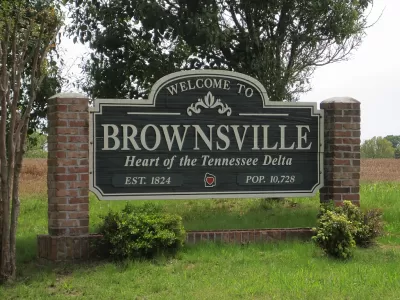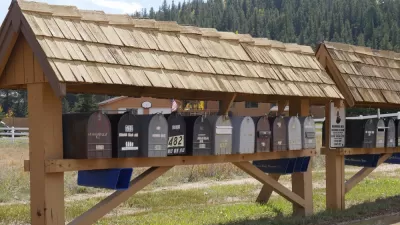A focus on ‘placemaking’ too often obscures or exploits local culture and history.

In a piece for The Daily Yonder, Shawn Pitts makes the case for rural placemaking, noting that residents and city leaders in rural communities often overlook their cultural resources.
According to Pitts, “Recognizing and elevating traditional art forms and folkways can do wonders for building positive local identity, and small-town arts agencies should do it whenever possible. Some communities hire outside experts to conduct fieldwork for this purpose, but the more hands-on local arts organizers can be, the better the result.”
Pitts explains how organizations can conduct surveys to understand their local resources, history, and the local art and places that residents cherish most. Pitts describes his discomfort with the term “placemaking,” writing that “It’s more about recognizing the authentic identity and inherent value of a place, and less about making anything new.”
Cautioning against “placemaking gone wrong” that exploits rather than celebrates local culture, Pitts notes, “At its best, creative placemaking seeks to promote deeper engagement and better understanding in the target community; the economic benefits are a bonus. Forethought and planning are required to achieve both, but many communities have found ways to capitalize on strengths in ways that are simultaneously respectful of local tradition and beneficial for the creative economy.”
FULL STORY: Rural Placemaking: More About the Place, Less About the Making

Study: Maui’s Plan to Convert Vacation Rentals to Long-Term Housing Could Cause Nearly $1 Billion Economic Loss
The plan would reduce visitor accommodation by 25,% resulting in 1,900 jobs lost.

North Texas Transit Leaders Tout Benefits of TOD for Growing Region
At a summit focused on transit-oriented development, policymakers discussed how North Texas’ expanded light rail system can serve as a tool for economic growth.

Why Should We Subsidize Public Transportation?
Many public transit agencies face financial stress due to rising costs, declining fare revenue, and declining subsidies. Transit advocates must provide a strong business case for increasing public transit funding.

How Community Science Connects People, Parks, and Biodiversity
Community science engages people of all backgrounds in documenting local biodiversity, strengthening connections to nature, and contributing to global efforts like the City Nature Challenge to build a more inclusive and resilient future.

Alabama: Trump Terminates Settlements for Black Communities Harmed By Raw Sewage
Trump deemed the landmark civil rights agreement “illegal DEI and environmental justice policy.”

Dear Tesla Driver: “It’s not You, It’s Him.”
Amidst a booming bumper sticker industry, one writer offers solace to those asking, “Does this car make me look fascist?”
Urban Design for Planners 1: Software Tools
This six-course series explores essential urban design concepts using open source software and equips planners with the tools they need to participate fully in the urban design process.
Planning for Universal Design
Learn the tools for implementing Universal Design in planning regulations.
City of Santa Clarita
Ascent Environmental
Institute for Housing and Urban Development Studies (IHS)
City of Grandview
Harvard GSD Executive Education
Toledo-Lucas County Plan Commissions
Salt Lake City
NYU Wagner Graduate School of Public Service





























